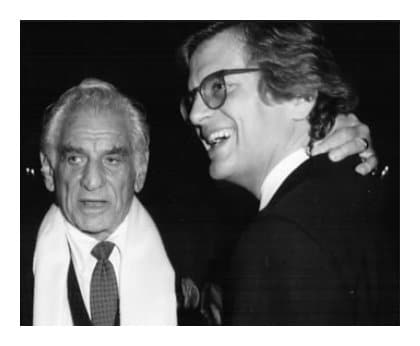Can you live a month without this music?
mainFrom the Lebrecht Album of the Week:
There are certain composers whom I need to hear on a regular basis or I suffer withdrawal pangs. Not Mahler, who is so well lodged in memory that I can call any theme to mind without effort. Nor Beethoven, who I’m living with all year after breakfast. But definitely Shostakovich, and not far behind….
Read on here.
And here.
More languages: Spanish, Czechand French






Yes I can live without it.
Shostakovich is always in rotation and never far away. In good times, I need him as a reality check; the rest of the time, just to wallow in.
I’d find it difficult to go too long without hearing any of Bach, Debussy, or the Bartok quartets.
The Bartok “Divertimento for Strings” is astonishing.
Yes, Patricia, I agree. It is Bartok’s farewell to his European life (and livelihood).
Are you as much of a Bartok fan as I am? If so, you must know the Music for Stringed Instruments, Percussion, and Celesta. It is one of the greatest of all compositions of any era.
The Concerto for Cello led to the Fantasy for Cello, and to the Concertino for Violin (Ostrovksy, Thomas Sanderling and Bournemouth Symphony Orchestra).
Never would have found it without you as guide, at least not today. The string quartets have been played across the Channel during the last five years or so… Thank you!
We are rereading about Shostakovich and Weinberg and how they barely survived the Zhdanovshchina and Stalin; how Weinberg’s father-in-law Shlomo Mikhoels was murdered in a grim mise-en-scène by the MGB in 1948 on Stalin’s orders; and on this very same day we learn that Alexei Navalny was poisoned, and lies in a coma in Russia.
(On the subject of a certain kind of disturbing continuity:
You may very well think that. I couldn’t possibly comment.)
As Brecht wrote, with more universal validity than he would have cared to acknowledge:
„Der Schoß ist fruchtbar noch, aus dem das kroch!“
Shostakovich survived Stalin by the skin of his teeth. After all, he had the salary of 10000 rubles/mo when the average was 300 and was awarded 7 Stalin`s prizes of several 100000 each. Who indeed could survive that, given the fact that he drank cognac like a fish and chain-smoked? If I had a fraction of his misfortunes I`d be dead in my early 20s.
I could happily live the rest of my life without hearing any Shostakovich.
I get withdrawal symptoms if I don’t hear the famous song “My lovely horse” sung by Father Ted Crilly and Father Dougal Maguire. Marvellous Sax solo in it three times a day after meals!
https://www.youtube.com/watch?v=jzYzVMcgWhg
I return to his 24 Preludes & Fugues for Piano Op87 as I do to the WTC.
A welcome companion (as well as to the Bach:)
https://www.earsense.org/Earsense/WTC/Shostakovich/circle.html
I understand that much of what Shostakovich wrote is not to most people’s taste. Those who don’t bother to explore his body of work will never discover some overlooked things of beauty that would appeal to them. Dmitri Shostakovich was a rare human being, able to express the torment he lived because of the time and place fate placed him. What he left behind is an extraordinary gift to humankind, to those who have ears to hear, who allow it to penetrate to a deeper level within themselves.
I completely understand — most people will run way from that place within themselves. Most will spend a lifetime avoiding ever going there. It’s an incredibly dark place. Some of us have no choice but to live in that space. But in the depths of those very uncomfortable places is an exquisitely rich and beautiful darkness. Perhaps consider choosing to embrace that darkness, that torment, instead of trying to shut it out. You might find some lovely spaces of solitude there. And you’ll discover some very beautifully lush gems, as well, to sink into. In that darkness, perhaps you will also find a bit of healing.
In Russia Mozart is often compared to Pushkin whose works are divine. Even prose doesn`t work in translation, let alone poetry. I discovered that after learning English and reading Hemingway and Edgar Poe, even the best translations don`t do justice to them. The only other one that I could compare to Mozart is Prosper Merimee, who actually learned Russian in 2 years well enough to translate Pushkin into French,his Mateo Falcone is a must-read. Shostakovich is the musical version of Susan Sontag.
I can not say “Thou” to Sontag.